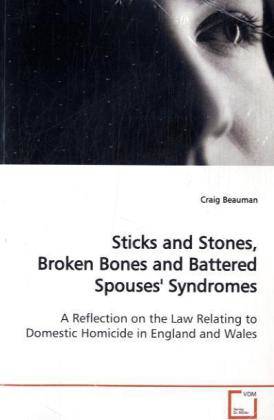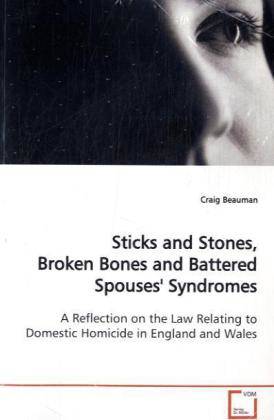
Door een staking bij bpost kan je online bestelling op dit moment iets langer onderweg zijn dan voorzien. Dringend iets nodig? Onze winkels ontvangen jou met open armen!
- Afhalen na 1 uur in een winkel met voorraad
- Gratis thuislevering in België vanaf € 30
- Ruim aanbod met 7 miljoen producten
Door een staking bij bpost kan je online bestelling op dit moment iets langer onderweg zijn dan voorzien. Dringend iets nodig? Onze winkels ontvangen jou met open armen!
- Afhalen na 1 uur in een winkel met voorraad
- Gratis thuislevering in België vanaf € 30
- Ruim aanbod met 7 miljoen producten
Zoeken
€ 77,95
+ 155 punten
Omschrijving
This book examines the English criminal law's response to murder cases from the nineteenth century to the present day. In particular the book looks at the law's inability to deal appropriately with those cases defined as 'domestic homicide', where persons who having faced abuse by their current or former partner find themselves killing their abuser and face a murder conviction. Whilst the English legal system has a structure to deal with murder cases, our culture has become more aware of and less tolerant of domestic violence and the apparent inexplicable indifference that our homicide law has in its application and resultant outcomes of domestic homicide cases. Such awareness has attracted national and international media interest particularly since the rise of feminism during the late 1960s and 1970s. Major cases and pressure group activity during the 1990's, and a change to a Labour Government in 1997 had led to the first specific government request in 2003 for a review of partial special defences to murder, with particular emphasis on domestic homicide.
Specificaties
Betrokkenen
- Auteur(s):
- Uitgeverij:
Inhoud
- Aantal bladzijden:
- 288
- Taal:
- Engels
Eigenschappen
- Productcode (EAN):
- 9783639126952
- Verschijningsdatum:
- 4/03/2009
- Uitvoering:
- Paperback
- Formaat:
- Trade paperback (VS)
- Afmetingen:
- 152 mm x 229 mm
- Gewicht:
- 426 g

Alleen bij Standaard Boekhandel
+ 155 punten op je klantenkaart van Standaard Boekhandel
Beoordelingen
We publiceren alleen reviews die voldoen aan de voorwaarden voor reviews. Bekijk onze voorwaarden voor reviews.











